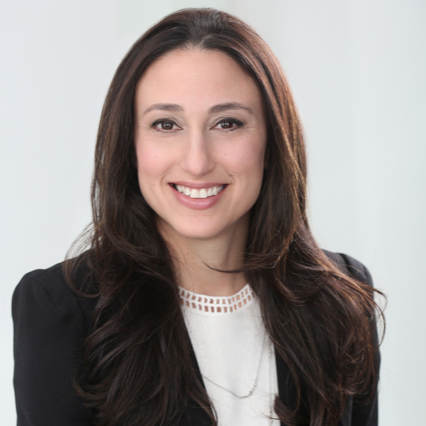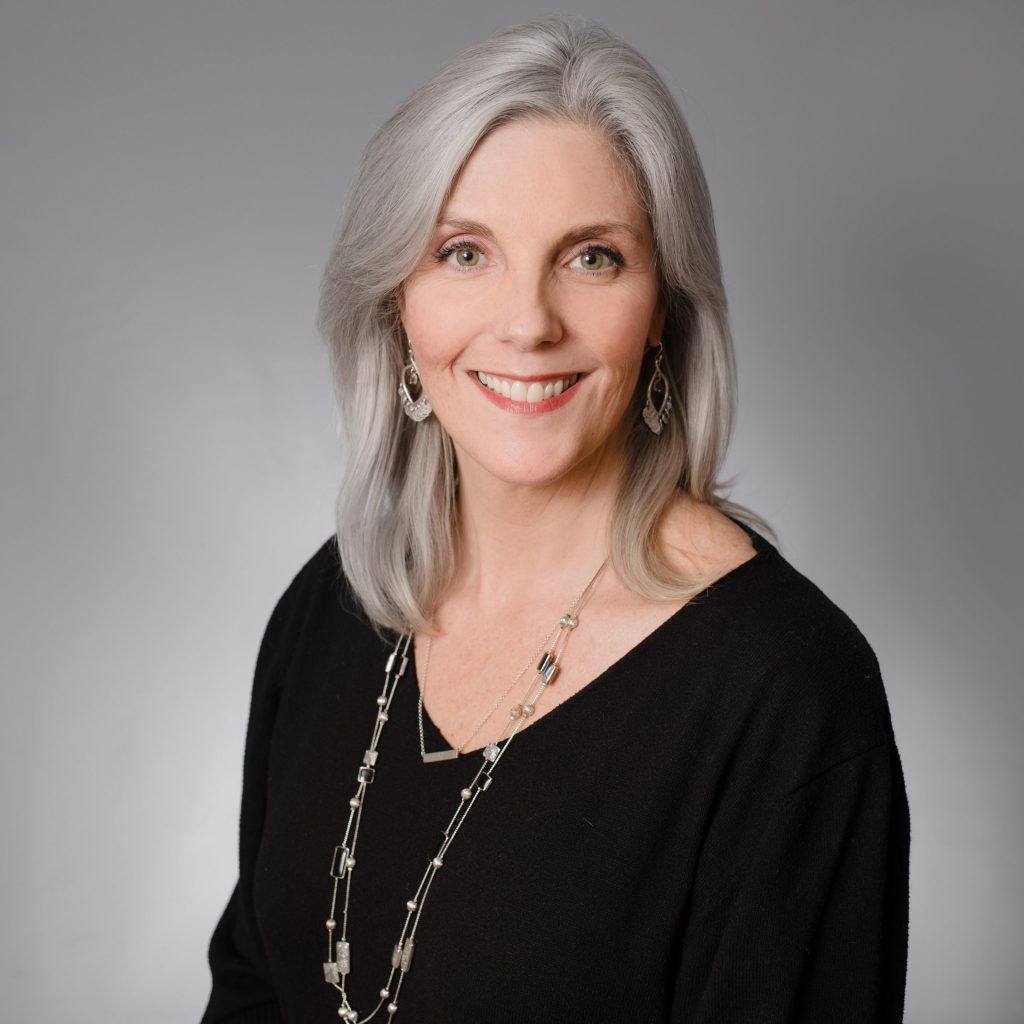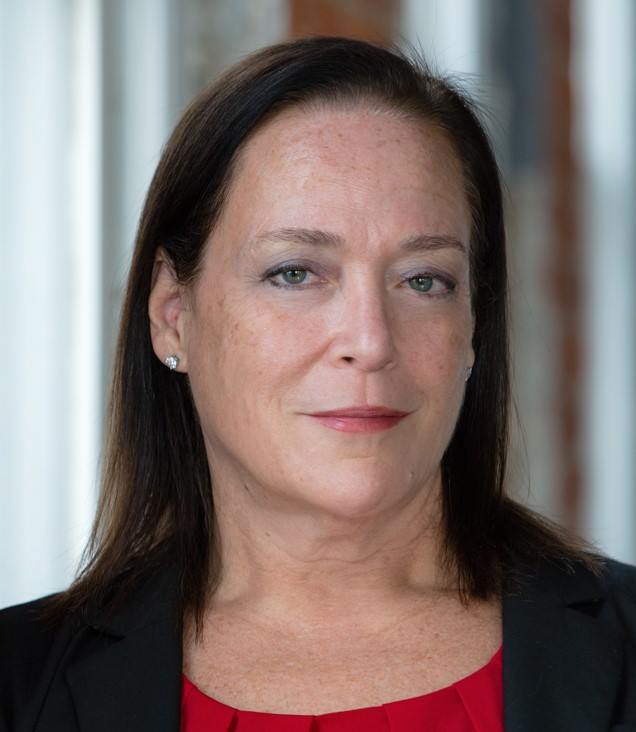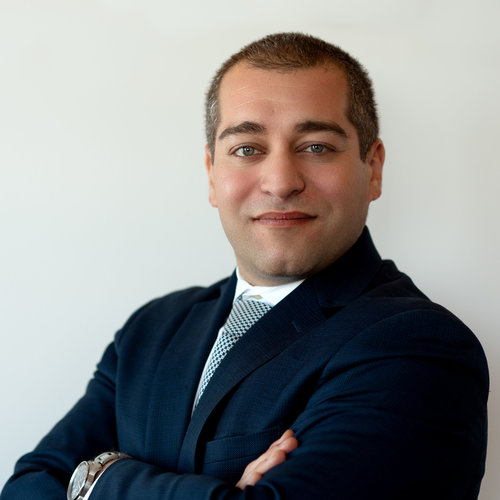

Moderator Lara Damashek (Director) is the founder of Early Insight Advocacy and is a parent advocate with experience as a public school teacher, special education attorney (Law office of Regina Skyer), and mother of a child with an IEP. Lara is also a CSE (Committee on Special Education) Representative at the Windward School (New York). Lara is a resident of Greenwich, Connecticut and mother of two elementary school children.
Someone you know may have a special education attorney that they worked with and recommend. Personal recommendations are great; just keep in mind that your friend’s child may be very different than your own, and your child’s special education case will certainly be unique to your child and school district and whatever has happened between your child and his or her school. Just because a certain lawyer worked well with a certain friend doesn’t mean he or she will be appropriate for you, your case, and your child.
We’ve all heard the stories – your friend/neighbor/cousin heard about this family who got their school district to pay 100% for a private special education school for three years plus transportation AND the legal costs covered. Sure, there are always the lottery winners – the ones who got everything they were asking for, and more. But that’s them – it’s not necessarily you. Whatever any family achieves through a legal process with their school district is a reflection of a complicated mix of factors – the student’s needs, of course, but also the particular school district involved, the individuals in that school district, and the history of the case itself. Very often the success of a case involves procedural failures on the part of the school district. Those factors reflect that specific case only and not your own, even if you attend the same school in the same school district.

Lakshmi Singh Mergeche has her Bachelor of Arts from St. John’s University and is a graduate of Brooklyn Law School. After graduating from law school, Ms. Mergeche was a prosecutor in the Bronx County District Attorney’s Office in the Domestic Violence Unit. Ms. Mergeche entered special education law as a litigator for the New York City Department of Education General Counsel’s Special Education Unit. Currently, Ms. Mergeche works to protect the educational rights of children by providing special education advocacy, including tuition reimbursement claims, representation at meetings with the Committee on Special Education and disciplinary matters.
You’re coming to counsel for an honest and meaningful assessment about your specific child and your specific circumstances.
Lakshmi Singh Mergeche, The Law Offices of Neal Rosenberg
Also remember to take everything you hear with a grain of salt. Even if your friends (or friends of friends) aren’t exaggerating, anyone who tells you exactly what they got in a legal settlement with their school district is probably violating the terms of their settlement by telling you anything at all. Most school districts require families, as part of any settlement, to agree not to disclose anything about the settlement itself. Attorneys usually recommend that families, in the rare case that someone asks, disclose only that they entered into an agreement with their school district and are unable to share any details of the agreement.
Special education attorneys are masters of a hugely complex and arcane field of law. But attorneys are just that – they are attorneys. Attorneys are not here to help you organize your paperwork — that’s your job. They are not here to provide you with emotional comfort or support — that’s your therapist’s job, or your friend’s, or even your Facebook group of special needs parents.

Attorney Dana Jonson is a Civil Rights attorney in private practice in Connecticut. Her firm exclusively represents the civil and legal rights of children with disabilities through the special education process. Dana represents families from early in the process at PPT meetings through Mediation, Due Process, and litigation in State or Federal Court if necessary. Prior to law school, Ms. Jonson was a special education teacher and administrator in Boston, MA. Dana is a graduate of Northeastern University School of Law. She also holds a Master of Science degree in Education from Simmons College, with a focus on Intensive Special Needs, and a Bachelor’s Degree in Psychology, with a focus on Developmental Psychology, from Fairfield University. She is currently admitted to the Connecticut State and Federal bar.
One thing for parents that can be dangerous is to rely on their attorney for emotional support.
Dana Jonson, Dana Jonson Law
Your attorney’s job is to assess the facts of your case, help you identify a specific goal for your student, and provide a reasonable game plan for achieving that goal. You and your attorney need to be on the same page as far as the goal you are working towards, as well as the game plan to get to that goal. Many an attorney-client relationship has been wrecked as a result of misunderstood goals and/or game plans.
Your attorney should also provide a reasonable estimate of what he or she thinks your case will cost, obviously with the caveat that there are factors that no one can control – like a particular district’s intransigence, whose desk your case ends up on, and the personalities of the individuals involved. All of these factors can have a meaningful impact on the eventual cost of any special education case. But first and foremost your attorney should help you have a clear understanding of the desired outcome of your case and provide you with a realistic understanding of what it will take to achieve that desired outcome in terms of time and cost.
Also, attorneys aren’t magicians. They can’t wave a magic wand and make whatever you want come true. Many times – most times – they don’t even meet your child; they see him or her through the lens of your reports, evaluations, testing, IEPs, etc. Because this is the case, they are only as good as the clinical support you have backing up your case. So many cases hinge on having the right clinical recommendations. Without that raw material, it can be difficult to get from Point A to Point B even with the best attorney in the world.
Special education attorneys also aren’t educational consultants. While they often do have knowledge of the special education schools available in a particular area, their job is not to find the right placement for your child. Their job is to help you build the legal case for a district outplacement to the appropriate educational setting for your child.
The attorney-client relationship is, at its heart, a relationship. The first step to a successful partnership between special education attorney and family is finding the right fit. And crucial to finding that fit is to know what’s out there. Anyone who is looking to hire a special education attorney should meet with more than one attorney. Because special education is such an arcane world, very often the first person that parents speak to who understands their problem and what they are going through is the special education attorney. In that rush of relief, parents are always tempted to hire that first attorney upon that first meeting, because they are the first person who really “gets it.” But just because they’re the first, doesn’t mean they’re the ONE. Don’t marry the first person you meet. Meet someone else. Get a second opinion. And then get a third.
You are going to spend a lot of very stressful time with this person, your special education attorney. This relationship isn’t like the one you might have with a real estate lawyer, or an attorney handling trusts & estates; this relationship is very personal because you will be spending most of your time discussing the ways your child isn’t succeeding at school. This process is very emotional and usually involves lots of crying, as well as a fair amount of frustration and anger. So you need to make sure that you mesh well with this person and can work with them under pressure and a considerable amount of stress.
Personal approach is one important factor to consider in selecting a special education attorney. Are you the kind of person who needs a lot of handholding? Or do you need more of a kick in the butt? Or maybe you’re the kind of parent who needs to be reined in every so often? I fall under that last category myself. Do you communicate better over email or on the phone? These are all useful questions to ask yourself when you are starting down this road.
Here are some other important things to know about your special education attorney:
Choose an attorney whose personal approach suits your own, complements your own, or suits whatever you want to accomplish for your child. Someone who is soft-spoken may choose an attorney whose style is more combative, or vice versa. Keep in mind that attorneys can be very successful for their clients regardless of their personal approach. An attorney with a softer, more collaborative approach can be just as effective as one with a more confrontational style. However, sometimes a more confrontational approach is necessary to move things to the next level. Whatever your choice, don’t forget that these parent attorneys are generally well known to the school districts in your area, and choosing an attorney sends a message to the school district. Make sure that the message – whatever it is, combative or collaborative – is the message that you want to send.
There are other things that you should know about a special education attorney before you hire one. What kind of relationship does he or she have with your school district and/or the attorneys representing your school district? Has your attorney been successful in his or her dealings with your school district? If you are looking to outplace your child at an independent special education school, sometimes the school itself has good insight into which attorneys have been successful at placing students in their institution. Some schools may even maintain a list of attorneys with whom they’ve worked in the past and who have been successful at placing students at their school.

Meredith C. Braxton has been practicing law for 30 years, with a primary focus on special education for the last 18 years. After spending time in general and business litigation in “big law” in New York City and two smaller Connecticut firms, Meredith started a solo practice and began representing students and parents in their efforts to enforce their civil rights by having their children identified, securing appropriate services, and enforcing their rights to appropriate placements, whether via PPT, negotiation, an administrative due process hearing, or appeal to the federal courts. Her office is in Greenwich.
It was really the ‘mom network’ that led me to understand what special education is.
Meredith Braxton, Meredith Braxton Esq.
Another important question to ask about your potential special education attorney is about their background. Many special education attorneys enter this particular branch of the law for personal reasons. Meredith Braxton, as she shared on our webinar, entered the field of special education law after she had children and those children encountered obstacles in their path to reading. Does your attorney have experience with students like yours? Dana Jonson is the mother to four children and foster children to many; four of her kids have had IEPs. She was also a former special education administrator, which gives her a unique perspective on the law and the system. And a growing number of special education attorneys are self-advocates who themselves received special education as students and into adulthood,. Self-advocate special education attorneys like Michael Gilberg are now focused on bringing their unique perspective and talents to the field of special education law.
In Connecticut, the community of special education attorneys is a relatively small one, and everyone pretty much knows everyone else. Connecticut school districts often have in house counsel but may also utilize attorneys from law firms that represent them in due process hearings or mediation. Some school districts will use the Town Attorney or the City’s Office of Corporate Counsel to represent them in all legal matters. Law firms in Connecticut who represent school districts include Berchem Moses, Shipman & Goodwin, Pullman Comley, Kainen Escalea, and Chinni Meuser. Sometimes a school district will hire two different firms – one firm to represent the Board of Education, and another to represent the school administration.
One of the main differences between special education in New York City versus the suburbs of New York or Connecticut was summed up best during the webinar by Greg Cangiano from Skyer Law – in the suburbs, it’s personal. In New York City with 200,000 students in the special education system, special education law is largely procedural and tends to be more impersonal on a case by case basis because of the numbers. In the suburban districts, the special education director is in regular contact with counsel and very often has had regular briefings from staff about potential problem cases or issues in the district. These districts are well versed in their obligations under IDEA and they keep a close eye on cases they think might be problematic.

Gregory Cangiano earned his bachelor’s degree at SUNY Binghamton and graduated with honors from Touro Law School in 2006. Greg is a partner at Skyer Law, and has been an attorney with the firm since 2006. He regularly participates in IEP review meetings with clients throughout New York City, Nassau, and Westchester. He has extensive litigation experience in all areas of special education law, including in appeals to the Federal District Court. From 2009-2012 Greg served as an adjunct professor at Bank Street College of Education teaching a graduate course, Communication and Collaboration: What the Law Intended. Greg lives on Long Island with his wife, a kindred spirit who teaches special education, and his two beautiful children.
Another big difference mentioned by moderator Lara Damashek, which both New York-based attorneys acknowledged, is that the type of special education law predominant in the city differs markedly from the suburbs. In New York City, special education cases are overwhelmingly reimbursement cases, in which a family has sued the Board of Education for private school tuition reimbursement after placement of a student in an independent special education school. In the suburbs, on the other hand, the fight is often about ensuring a student’s full inclusion into the district school. The Connecticut attorneys on our panel concurred that their focus much of the time is on working with the school-based team and school district to construct an appropriate, inclusive educational plan for the student.
Finally, ultimately one of the biggest differences between New York City and the suburban districts of New York and Connecticut comes down to money. In New York City, many of the cases in which Skyer Law or The Law Offices of Neal Rosenberg appear on behalf of parents don’t have opposing counsel on the school team side. In Westchester and Connecticut on a district by district basis, some school districts can draw on tremendous financial resources to defend against parents’ legal claims.
The attorneys on our panel were unanimous on this point – the single biggest reason for an attorney-client relationship to turn sour is communication. Communication and collaboration are at the heart of a successful attorney-parent partnership. Greg Cangiano from Skyer Law said it best when he commented that the lack of communication is the downfall of any relationship, and that for an attorney it is important to keep in regular contact with your client even if there is nothing new to report.
They don’t have to like you, but they do have to trust you.
Dana Jonson, Dana Jonson Law
This is also true on the parent or family side – communication is crucial to the success of your relationship and of your endeavor. The lack of communication – or the withholding of information – can significantly affect an attorney’s ability to do their job on your behalf. Your relationship will work much better if you are both on the same page – you have a realistic view of your child and the goals you would like to achieve, a realistic view of what this is going to cost you, and a realistic view of how long this is going to take.
You also need to have a realistic view of what you are entitled to from your attorney. You are entitled to a timely response to any question or concern that you have. But most school districts operate during the hours of 8am to 4pm on Monday through Friday. Getting an immediate response from your attorney on a Saturday night at 9 o’clock isn’t just unreasonable, it’s disrespectful to your attorney and to your relationship. On the other hand, if your attorney is taking a week or more to get back to you, that’s not okay either.
Similarly, the attorney needs to know everything that you know. If you withhold information from your attorney that is relevant to the case, it makes it difficult for your attorney to do his or her job, and they’ll usually find out anyway. If they find out from the school district, it damages everyone’s credibility: yours with your attorney and your attorney’s with the school. And it makes trust – the foundation of this relationship – difficult, if not impossible.
Lakshmi Mergeche from Neal Rosenberg’s office said it best during the webinar: “Pray for peace, but prepare for war.” This isn’t a war necessarily, but the special education process will ultimately be most successful for you and your family if you work on controlling the elements of the process that you can control.
First, make appointments to meet with more than one attorney. Sometimes this isn’t financially feasible as some attorneys charge a nonrefundable fee, sometimes into hundreds of dollars, for the initial consultation – regardless of whether or not they decide to take your case. For S.E.L.F. clients, I always suggest that they explain their situation and ask if this fee can be waived.
Second, get your paperwork in order. In our Proyecto de Educación Especial seminar on special education for ESL/ELL families, we sometimes hold a binder workshop during our sessions. In this workshop, families organize their paperwork into 2 or 3 inch three-ring binders, sorted by type (“IEPs” “Evaluations” “Prior Written Notice” “Emails” “FBAs” etc), and arranged in reverse chronological order with most recent paperwork on top. I suggest having one binder per school year per child; I’ve seen parents with entire bookshelves filled with binders organized in just this fashion. Organizing your documents in this way provides access to the documents you need at the moment that you need them, and makes it easier for you to refer to them during a meeting without having to flip through reams of paper looking for just the document you need.
Third, prepare for your initial consultation. Because the attorney is billing by the hour, you must focus on using your time as efficiently as possible. I think it’s incredibly helpful for all families in the special education process to construct a written narrative of their child’s story. You can use the emails that you’ve been sending to your district representatives and school based team to help you construct this narrative or timeline. Use exact dates for any meetings, phone calls, emails, ad hoc communications, reports, etc. This ensures that you have a coherent story to tell your attorney, and anyone else who might need to hear it, and you won’t leave anything out or get dates and names wrong.
The final piece of preparing for your meeting with your attorney is to write down a list of questions to ask the special education attorney about his or her experience. I’ve listed examples of some of those questions above. You can and should research your attorney on the Internet before you meet; there is a wealth of information on partner organization websites like the Council of Parent Attorneys and Advocates (COPAA) as well as on the attorney’s own website. In addition, you can often find various legal decisions in which your attorney was involved online; the Connecticut Department of Education maintains a list of all fully adjudicated due process special education hearings going back at least ten years.
Fourth, clinical support is key to the success of any advocacy effort on behalf of a child. You, the parent, are a crucial member of the IEP team. Your attorney can be an invaluable support and lifeline in prodding the school-based team to develop and implement the supports that your child needs. But you need the clinical support to back all of this up. Your opinion and the opinion of your attorney won’t matter without the expert opinion of the neuropsychologist, BCBA, speech therapist, neurologist, etc. Without evaluations, testing, and reports to support the recommendations, it’s just you versus the school district.
Special education attorneys in Connecticut & Westchester generally charge fees to represent a family in a special education matter in one of two ways. First, an attorney can charge on an hourly basis. This structure provides a framework for the attorney’s hourly fees, the fees of any junior attorneys or paralegals who may work on the case, and any ancillary fees (copying, FedEx, and other administrative fees). The attorney will usually request a retainer of a certain dollar amount (like $5,000) at the start of the case and will keep track of the billable hours spent on the case from that point on. The attorney will deduct billable hours from the retainer until the retainer is exhausted or the case is resolved. If the retainer is exhausted or spent before the case is resolved, the attorney will ask the client to refresh the retainer to continue the work that’s been done on the client’s behalf.
Special education attorneys in Connecticut can charge anywhere from $250 to $450+ an hour for their services. Phone calls, document review, travel time, PPT meetings, pre-conference meetings – these are all subject to hourly billing. Emails, phone calls, texts – any questions you send to your attorney, any documents that require review, are all subject to billing. For example, if your attorney spends 15 minutes answering an email to you and they charge $400 per hour, that email will cost you $100 in legal fees.
A special education attorney can also charge a flat fee for a period of time when the attorney would represent the family. For example, a special education attorney may charge $5000-$7500 to retain his or her services for a specific period of time (usually less than a year). In this arrangement, the attorney will keep track of billable hours, but all of the emails, phone calls, meetings, and travel will be included in the flat fee retainer agreement. Most attorneys that work on this type of financial agreement would exclude due process hearings, which are very time consuming and expensive for both parties, from a flat fee agreement.
One of the most important things to remember about hiring at attorney in the special education process – no matter who they are – is that the decision is one that cannot be undone. Once you’ve taken that step, you have changed the dynamic between your family and the school district. It’s not impossible to have a collaborative relationship between a family and a school after an attorney has been hired by the parents, but generally speaking the interaction between the school district and the family will be irrevocably altered as a result of the decision on the parent’s behalf to seek the support of an attorney.
Very often parents reach out to a special education attorney because they’ve reached an impasse or an obstacle in their child’s educational journey, and they cannot move forward without support. But what can you do if you can’t afford the thousands of dollars in retainer fees that most attorneys charge to let you walk in the door?
Special Education Legal Fund was founded on this premise: that all families deserve equal access to full advocacy efforts for their children. By providing over $275,000 in grants over the past two years to families in 30 school districts in Connecticut and Westchester County, S.E.L.F. has endeavored to level the playing field for all families in special education regardless of income or background.
For more information about S.E.L.F. or to inquire about S.E.L.F. grants, please contact: christine@spedlegalfund.org
Resources Mentioned in this Blog
DISCLAIMER: This guide was written by a parent for parents. It is intended as a resource for families who are navigating the special education system in Connecticut or Westchester, New York and is meant to provide a basic understanding of special education attorneys in those regions from a parent’s perspective, with an emphasis on attorneys who practice on behalf of children and families. This guide is not intended to provide legal support, advice, or assistance, nor is it intended to replace the advice of a qualified special education attorney. Families in need of legal advice, support, and assistance should contact a special education attorney licensed to practice in Connecticut or New York to discuss the specific needs of their individual student.
Wealthspire Advisors is an independent registered investment adviser and subsidiary of NFP Corp, currently overseeing approximately $29.3 billion in Assets Under Management* and firmly committed to serving clients in a fiduciary capacity. Though our size means we have a variety of clients, we work most extensively with high net worth and ultra-high net worth individuals and families. We lead with planning that is tailored to meet the goals and needs of our clients, we invest with a long-term approach that focuses on a disciplined strategy and avoids emotional decision-making, and we aim to simplify lives by coordinating seamlessly with outside advisors and building our client teams around a collaborative structure.
* Reflects combined data as of 12/31/2024 for Wealthspire Advisors LLC and its subsidiaries.